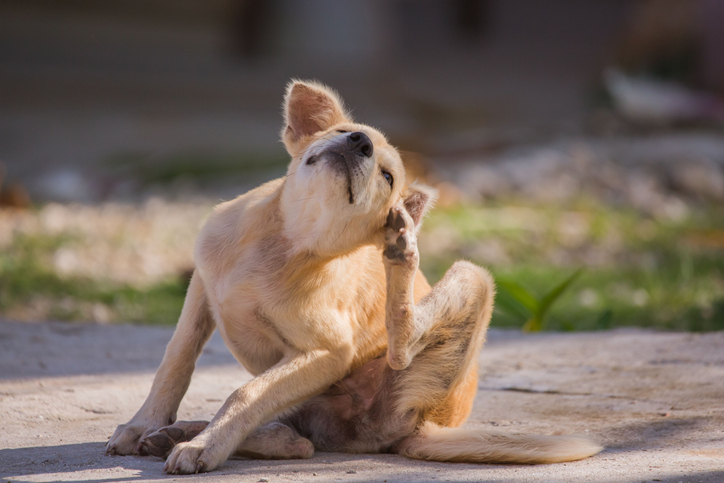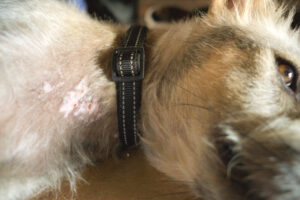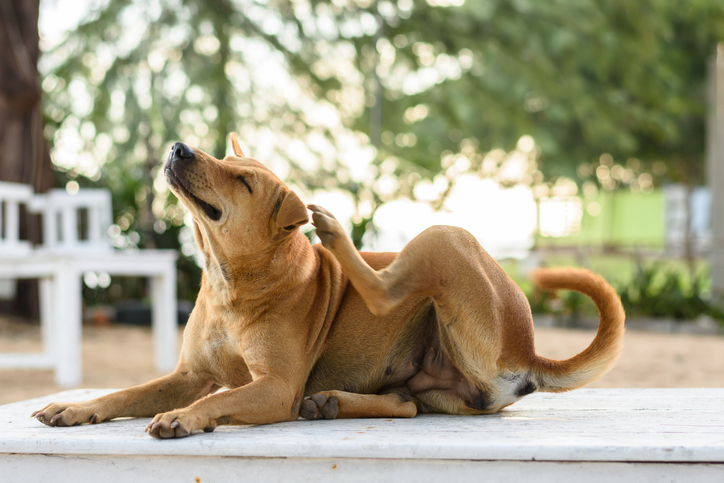It can be a concerning and worrisome issue when you notice your dog losing hair. There are many possible reasons for a dog to experience hair loss, ranging from skin infections and allergies to hormonal imbalances or even genetics. It is important to understand the potential causes in order to address the issue and get your furry friend feeling better as soon as possible.
If your dog is losing hair, it could be due to a variety of factors such as fleas, allergies, poor diet, stress, or a skin infection. If the hair loss is sudden or excessive, you should consult your veterinarian right away to determine the cause and best course of treatment. In some cases, further testing may be necessary to rule out certain diseases. Regardless of the cause, it is important to address the issue as soon as possible to ensure your pet’s health and well-being.
Dogs can experience hair loss for a variety of reasons, from parasites to allergies to medical conditions. If you’re wondering why your pup is suddenly losing fur, it’s important to understand the possible causes and what you can do to help. By continuing this article, you’ll learn more about the most common causes of hair loss in dogs, how to identify them, and how to treat them. So don’t miss out on the chance to get to the bottom of your pup’s hair loss and give them the help they need!
Causes of Hair Loss in Dogs
A dog losing hair can have many causes, ranging from allergies and parasites to hormonal issues and medical conditions. Allergies to fleas, food, or the environment can trigger an immune response which can lead to hair loss. Parasites such as mites, lice, and ringworm can also cause hair loss. Hormonal imbalances, including hypothyroidism, can also cause hair loss. Finally, certain medical conditions such as skin infections, fungal infections, and autoimmune diseases can lead to hair loss.
Allergies
Allergies can cause dog hair loss when a dog is exposed to an allergen, such as pollen or dust mites. This triggers an allergic reaction, which can cause the dog’s skin to become inflamed and itchy. This can lead to excessive scratching, licking, and biting at their skin, which in turn can cause hair loss. Additionally, allergies can also cause skin infections, which can further exacerbate the problem of hair loss.

Infections
Infections can cause dog hair loss in several ways. Bacterial and fungal infections may lead to hair loss due to inflammation and irritation of the skin. These infections can also cause itching, redness, scaling, and crusting which can result in excessive scratching and licking that can damage the hair follicles and cause them to fall out. In some cases, infections can also be responsible for an immune-mediated reaction which can result in hair loss. Infections can be prevented with proper hygiene, diet, and regular veterinary visits.
Hormonal Disorders
Hormonal disorders are one of the common causes of dog hair loss. Such disorders can be caused by a variety of things, such as hypothyroidism, hyperadrenocorticism (Cushing’s disease), and sex hormone imbalances. In these cases, the imbalance of hormones can cause the dog’s coat to thin, become dry and brittle, or even fall out completely. If your dog is exhibiting signs of hair loss, it is important to have them examined by a vet to determine if a hormonal disorder is a cause.
Stress
Stress can be a major factor in dog hair loss. When a dog is stressed, the body releases hormones that can cause the hair follicles to stop producing hair. Stress-induced hair loss usually occurs on the back or sides of the dog’s body and can be accompanied by itching, skin lesions, and other signs of skin irritation. In some cases, hair may not grow back until the stressor is removed, making it important to identify and address the source of the stress.

Poor Nutrition
Poor nutrition can be a major contributing factor to dog hair loss. A lack of essential vitamins and minerals, or an imbalance of nutrients in the diet, can cause deficiencies that lead to thinning and shedding of the fur. This can also be caused by an underlying medical condition, so it is important to consult a veterinarian if your dog is experiencing excessive shedding. Proper nutrition is key to helping your pup maintain a healthy coat, and adding supplements may help to restore their fur back to its natural state.
Diagnosing and Treating Hair Loss
When it comes to diagnosing and treating hair loss in dogs, it is important to take them to the vet. The vet may conduct a physical exam and may recommend diagnostic tests such as skin scrapings, blood tests, and biopsies to determine the underlying cause. Once the cause of the hair loss is determined, the vet can then discuss treatment options with you. These may include topical ointments, antibiotics, shampoos, or even surgery. Your vet will help you decide which option is best for your pup and will provide you with the necessary resources to help manage their hair loss.
Prevention of Hair Loss
Preventing hair loss in dogs is an important part of pet care. Allergy prevention is key to keeping your pup healthy and happy. Regular grooming helps reduce the risk of allergic reactions from developing, as well as removing excess fur and dander. A healthy diet rich in essential vitamins and minerals will also help support a healthy coat. To ensure optimal health, make sure your dog has regular check-ups with the vet to identify any potential issues early on.
Conclusion
You should begin by visiting your veterinarian for a checkup and to discuss the cause of your dog’s hair loss. Depending on the underlying condition, your vet may recommend a variety of treatments including dietary changes, supplements, topical medications, or shampoos. It is important to follow your vet’s instructions carefully to ensure that your pup is receiving the best care possible. Additionally, you should make sure to keep your pup comfortable and warm during the healing process and give them plenty of love and attention.
If you have any questions about your dog losing hair, please call us at (908) 359-2000 or schedule an appointment with us! Here at Harlingen Veterinary Clinic, we are ready to help you and your pet if you have a winter pet emergency.





